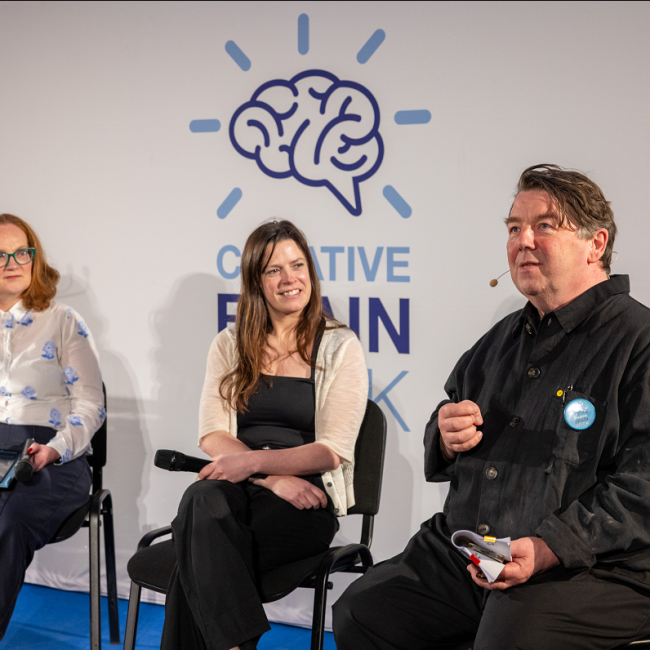Exploring the role of Kindness in Health, Healthcare, and Creativity at Creative Brain Week 2025
Local and international academic and research experts—alongside individuals with lived experience—came together to explore the powerful intersection of brain science and creativity, and the potential benefits it can bring to humanity.
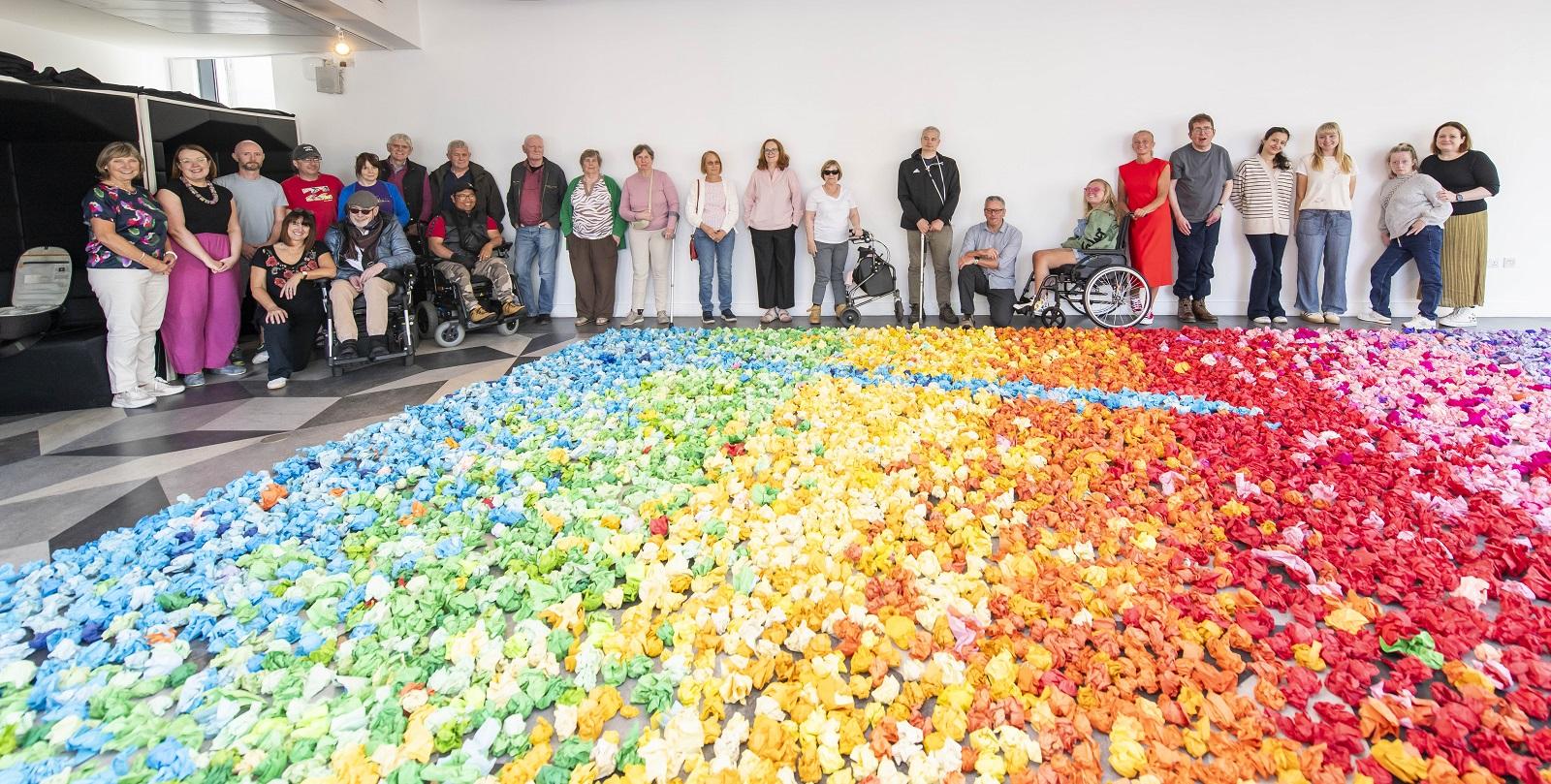
Participants in the Re-Framing Acquired Brain Injury workshop gather around the collaborative mandala installation during Creative Brain Week. Photograph by Dave Keegan.
Now in its fourth year, Creative Brain Week—a collaboration between the Global Brain Health Institute (GBHI) at Trinity College Dublin and Creative Aging International—returned to explore the theme of ‘Activating Kindness’ both online and in person at Trinity from June 9–13. Over the past 12 months, the groundbreaking event expanded to include six Creative Brain Week events around the world, spanning Africa, Asia, Australia, and South America.
Leading experts in science, psychiatry, neurology, and psychology, alongside people with lived experience of dementia and other brain health challenges, explored the vital role of kindness and its intersections with brain science and creativity. Their collaborative investigations aimed to uncover how these connections can foster positive outcomes for individuals and society. The insights generated are intended to shape both the understanding and practical advancement of brain health.
Brian Lawlor, Founding Director of GBHI at Trinity said “In a world marked by uncertainty and conflict, Creative Brain Week 2025 invited us to pause and ask: What if we chose a different path—one of kindness? This year’s theme, ‘Activating Kindness,’ explored the brain science and psychological roots of kindness, and how it is practiced in real-world contexts. It challenged us to discover how kindness can be cultivated and what we can learn from those already leading the way. It was a vital opportunity to explore what happens when kindness, creativity, and brain science come together—and to understand the positive impact kindness has on our brains, health, and communities.”
On the first day of the conference, the Pratchett Prize—named in honour of the acclaimed author Sir Terry Pratchett, whose life’s work was donated to Trinity College—was awarded to Fiona Flavin and Sinéad Gallivan for Singing for the Brain, in recognition of their contribution to reducing the impact and stigma of Alzheimer’s disease through music, connection, and community. They joined last year’s inaugural joint winners, Irish actor Bryan Murray and playwright Deirdre Kinahan.
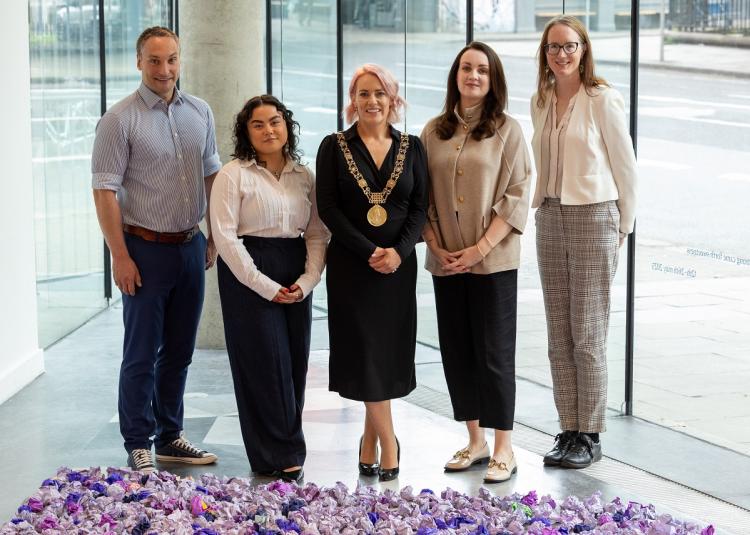
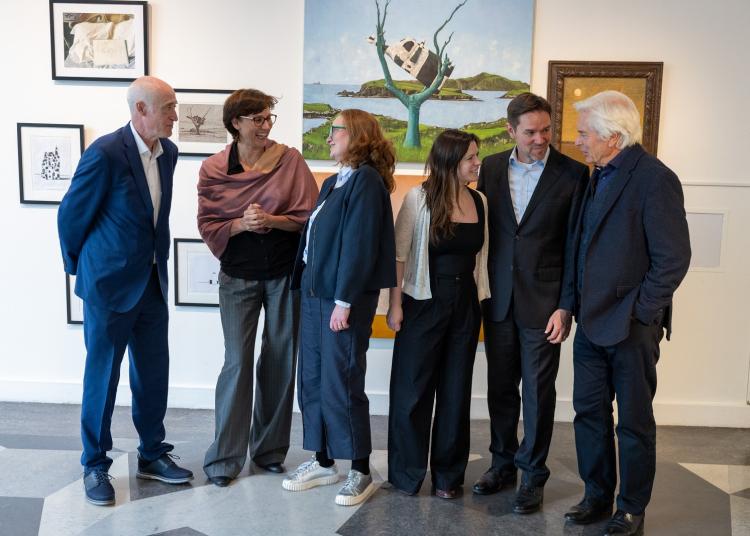
Left: James Hadley, Trinity Centre for Literary and Cultural Translation, The Lord Mayor of Dublin Emma Blain, Pratchett Prize winners Fiona Flavin and Sinéad Gallivan, and Anne-Marie Glynn, GBHI at Trinity. Right: GBHI and Atlantic Fellow community members: Brian Lawlor, Iracema Leroi, Gráinne McGetterick, Eimear McGlinchey, Nicholas Johnson, and Ian Robertson. Photographs by Paul Sharp, Sharppix.
Creative Brain Week featured compelling talks, including "The Value of Activating Kindness," with Niamh Flynn and Cliona Murray of the UNESCO Child and Family Research Centre at the University of Galway, who presented findings from empathy research with young people. Gillian Sandstrom of the Centre for Kindness Research at Sussex University also spoke, illuminating the nature of kindness and its impacts on people and communities.
This year also introduced Threads—small group sessions where experts and practitioners collaborated on actionable, real-world applications of neuroscience and creativity across key areas such as healthcare, education, the impact of creativity, and the evolving role of cultural institutions in brain health
Dominic Campbell co-founder of Creative Aging International and co-producer of Creative Brain Week said, “We were delighted to return to Trinity for our fourth Creative Brain Week in Dublin. This year’s event was greatly enriched by the momentum built from previous gatherings, including six global events held over the past year. We learned a lot!
It was a stimulating week, combining thought-provoking talks, a rich creative programme, and exhibitions—spanning disciplines and countries but always with arts, neuroscience, and lived experience at its core. We engaged with global experts and local heroes alike, sharing both established and emerging practices in research, innovation, and activism.
More than knowledge-sharing, we aimed to turn informative discussions into real-world action that could make a tangible difference in brain health. We hope people left feeling inspired to Activate Kindness.”
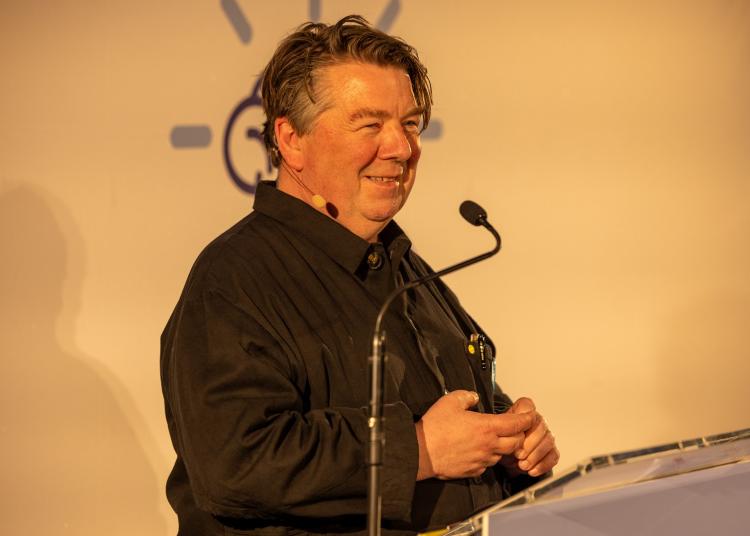
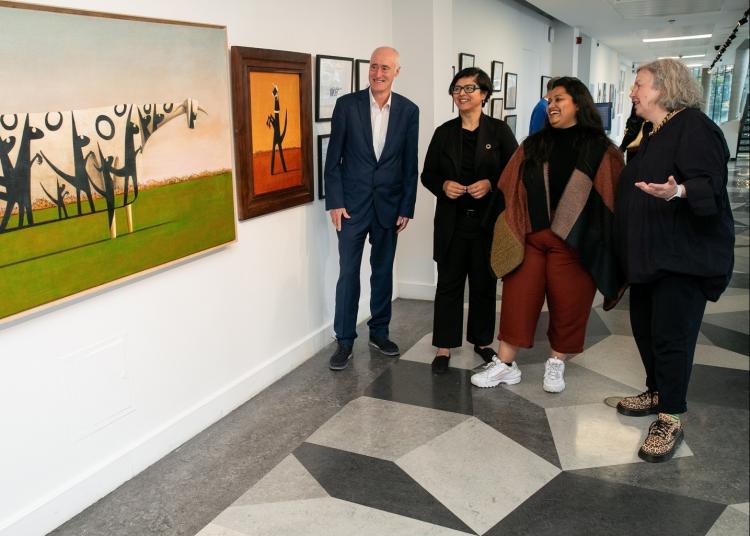
Left: Dominic Campbell during the speaker’s program. Right: Brian Lawlor, Nisha Sajnani, founding co-director of the Jameel Arts & Health Lab and Director of the Drama Therapy program at New York University, Atlantic Fellow Anusha Yasoda-Mohan, and Dr. Linda Doyle, Provost of Trinity College Dublin, reflect on the creative exhibition. Photographs by Paul Sharp, Sharppix.
Program Highlights
- The Neuroscience of Activating Kindness: An expert panel of neuroscientists, neurologists, and neural engineers explored what drives kindness—from chemical changes in the brain’s empathy circuits to why people help others even at personal risk. Chaired by Ian Robertson, GBHI Founding Director and Professor Emeritus of Psychology at Trinity, the session featured panelists including Alejandro López Valdés, GBHI faculty member and Assistant Professor in Neural Engineering and Brain Health at Trinity, who revealed the brain’s role in kindness and how kindness shapes our brains.
- Kindness in Unkind Zones? Speakers reflected on a range of brain health issues and environments, considering topics such as whether stigma around diseases like Alzheimer’s worsens outcomes and how concepts of health shift in conflict zones versus peaceful settings. Among them were Brian Lawlor and Ganzamungu Zihindula, Research Fellow at Trinity's Centre for Global Health and Atlantic Fellow forHealth Equity in South Africa, whose work on displacement in Congo and Ireland urged a fresh perspective on brain health.
- Re-framing Acquired Brain Injury: Re-Framing is a collaborative installation between artist Rachel Fitzpatrick and people with lived experience connected with Brain Injury Matters NI and Acquired Brain Injury Ireland (ABII). Together, they shared experiences through the creation of a mandala—a visual expression of the cyclical journey of change and transformation following brain injury. Collaborators include Gráinne McGettrick, Policy and Research Manager at ABII and Atlantic Fellow at GBHI.
- Keepsake Chronicles: Stories in Times of Dementia: A creative collaboration between people living with dementia, photographer Alex Kornhuber, Atlantic Fellow at GBHI, poet Cathy Fowley, and Professor of Clinical Nursing Kate Irving, Dublin City University. The project invited participants to share the stories behind treasured personal objects in storytelling groups—creating joy, connection, and lasting keepsakes for uncertain futures, resulting in poems, a book, and the images in this exhibition.
- Embodied and Performed Learning: This session examined how live performance artists, dancers, and theater makers learn through the body, and what this contributes to understanding people living with degenerative conditions like Alzheimer’s, supporting health care, communication, and systems change. Chaired by Nicholas Johnson, GBHI faculty member and Associate Professor of Drama at Trinity College, with contributors from the Abbey Theatre, SoloSIRENS, and the University of Melbourne.
- Measuring the Impact of Creativity on Brain Health: Chaired by Claire Howlin, Assistant Professor of Psychology at Trinity College the session focused on creative practice as research and explored strategies for integrating art into policymaking. It assessed which models effectively measure creativity’s impact on brain health, questioned whether medical models leave some impacts unmeasured, and considered the need for new approaches.
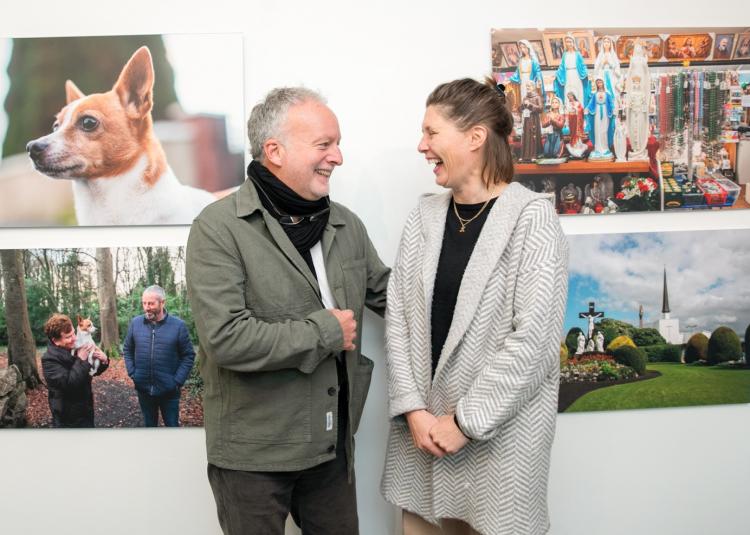
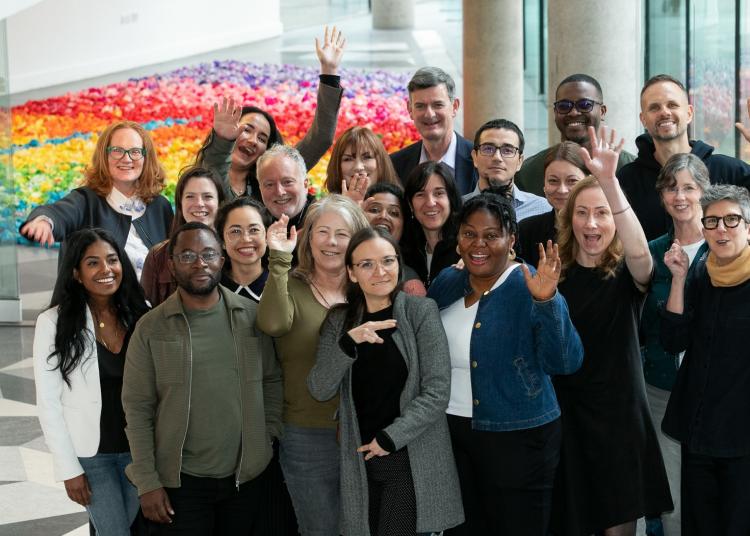
Left: Photographer and Atlantic Fellow Alex Kornhuber and Kate Irving, Professor of Clinical Nursing at Dublin City University, pictured with their collaborative project Keepsake Chronicles: Stories in Times of Dementia. Right: Members of the Atlantic Fellows community celebrate during Creative Brain Week. Photographs by Paul Sharp, Sharppix.
Authors

Helen Murray
Communications Officer
GBHI Members Mentioned
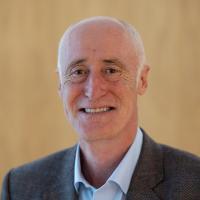
Brian Lawlor, MD, FRCPI, FRCPsych, MRIA
Founding Director, Trinity College Dublin

Dominic Campbell
Cultural Producer
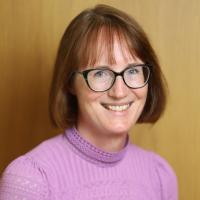
Anne-Marie Glynn, PhD
Chief Operations Officer, Trinity College Dublin

Iracema Leroi, MD, FRCPC, MRCPsych
Site Director, Trinity College Dublin
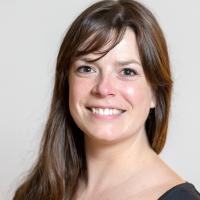
Eimear McGlinchey, PhD
Assistant Professor in Intellectual Disability
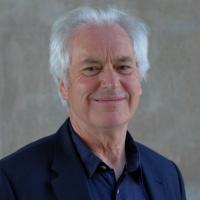
Ian Robertson, MPhil, PhD, FTCD
Founding Director, Trinity College Dublin
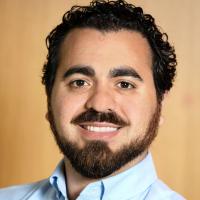
Alejandro López Valdés PhD, MSc, BSc
Assistant Professor in Neural Engineering and Brain Health
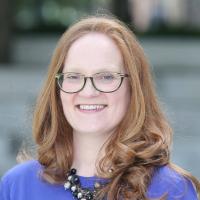
Gráinne McGettrick, MA
Social Scientist
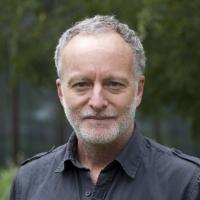
Alex Kornhuber
Photographer
